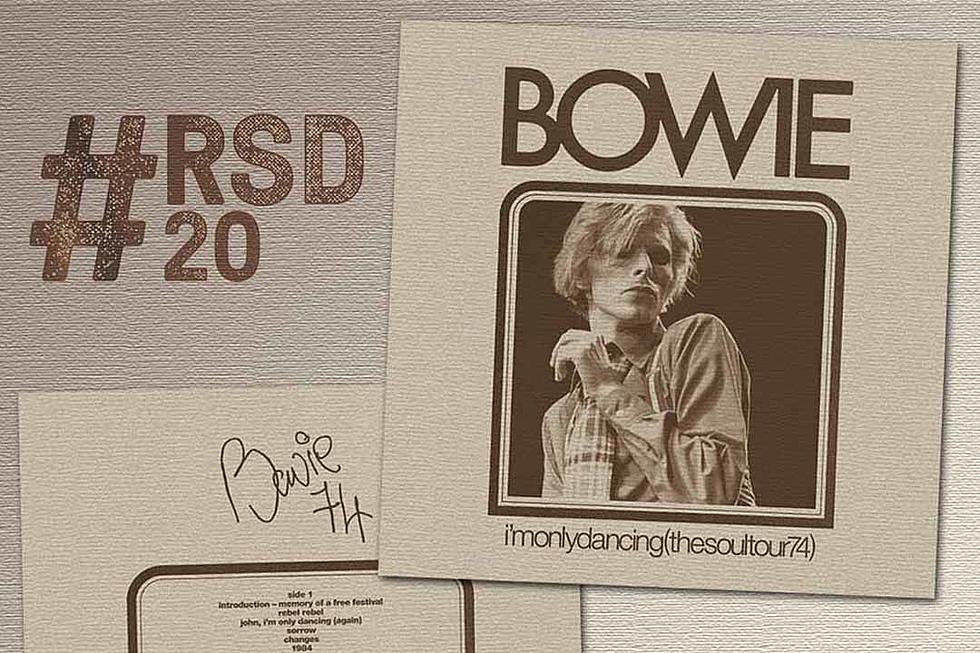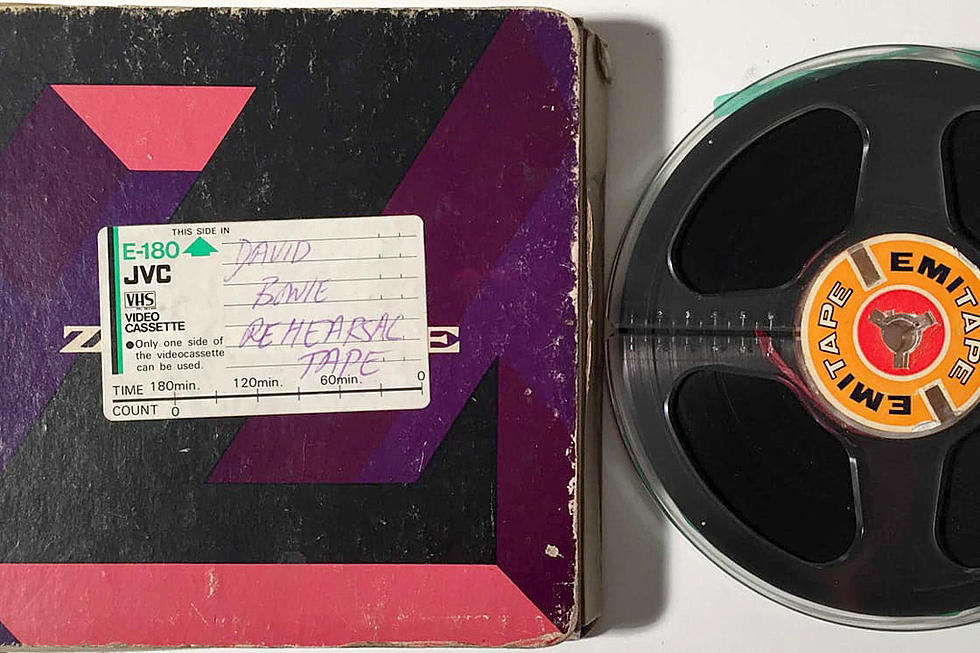
David Bowie: An Appreciation of Genius Now Gone
Not this. Anything but this.
Just three days ago (January 8, 2016) we were celebrating David Bowie's 69th birthday and the arrival of his latest album, Blackstar. It's a wonderful album, artful and challenging to the last. The man went out on a high note.
We try to keep these articles impersonal, but I'm not sure how to process the news that my musical hero succumbed to cancer on Sunday, January 10. "Hero" is not hyperbole. From the moment that I saw Bowie on The Midnight Special when I was just a grade schooler, Bowie was my guy.
I wasn't the only one. There have been more famous rock stars, more commercially successful, more critically acclaimed, but arguably there has never been a more influential artist than David Robert Jones. With exception to country, there's not a genre of popular music that wasn't influenced by Bowie over the course of his fifty year career. The punks loved him. The Top 40 kids loved him. Drum and bass, industrial, techno, glam, soul, krautrock, jazz, theater -- he really did it all.
It all started with a plastic saxophone and a love of Little Richard. He was still David Jones then, a classmate of Peter Frampton and already known among the grown-ups as a gifted, artistic kid. At age 15 he formed the Konrads, his first band, and spent the '60s playing with similar bands that never went anywhere but whose names are known to Bowie fans: the Mannish Boys; the King Bees; the Lower Third. When the Monkees' popularity soared, he took the surname Bowie to avoid confusion with their diminutive singer, Davy Jones.
It was at the tail end of the '60s that things started happening for Bowie. This is the era in which he trained in mime with Lindsay Kemp, a period that influenced the performance portion of his career significantly. His self-titled '67 album for the Deram label proved to be something of a false start commercially, not unlike the singles he'd cut with various bands earlier in the decade. For the bulk of his career he distanced himself from the album, but returned to some of its tracks in 2000 for the never released Toy album. The updated version of "Silly Boy Blue" holds its own against the best of Bowie's catalog.
In '69 he had his first true hit with "Space Oddity," but the accompanying album didn't fare as well as the single. The rest of the album (also titled David Bowie when originally released) has an acoustic, singer-songwriter vibe that has a certain charm, but he clearly hadn't found his footing yet.
That began to change with 1970's The Man Who Sold the World, the album that paired Bowie with what would eventually become the Spiders From Mars. It also brought longtime producer Tony Visconti into the fold. The following year's Hunky Dory introduced "Changes" into the Bowie canon, but there's so much more there. "The Bewlay Brothers" picked up the "All the Madman" theme from the previous album, allusions to the artist's institutionalized half brother, Terry, and, perhaps his own concerns regarding mental illness. "Queen Bitch" tipped a sparkly top hat to glam rocker Marc Bolan, whereas "Andy Warhol" and "Song for Bob Dylan" were more overt with their head nods.
Hunky Dory is a truly great album, but 1972's The Rise and Fall of Ziggy Stardust and the Spiders From Mars represents the moment that Bowie truly broke through after 11 years as a working musician. Everything came together here -- the music, the imagery, the lyrics. Fans turned out in droves, and then Bowie did what Bowie always did: He blew it all up and started again.
Ziggy was gone, but from his ashes rose Aladdin Sane, the jazzy cat with the Jean Genet fixation. The Spiders were still there in all but name, as was a young pianist named Mike Garson who would remain one of Bowie's sidemen for decades. He was done with that character after Aladdin Sane, and after '73's covers album, Pin-Ups, he was on to the next one: Halloween Jack, the real cool cat who lived on top of Manhattan Chase.
Diamond Dogs started life as a musical adaptation of George Orwell's 1984, but the author's widow refused to grant Bowie rights. Instead he tweaked the songs a bit and turned the whole thing into an elaborate stage show. The title cut was a hit as was "Rebel Rebel," but again it's the deep cuts that appeal to the true fans. The closing tracks "Big Brother/Chant of the Ever Circling Family" remain art rock at its finest.
By '75 the rock and roll lifestyle was really taking its toll. Bowie was cocaine thin and behaving erratically, but the "plastic soul" (his term) of Young Americans marked yet another transformation. Powered by "Fame," co-written with John Lennon, the album did remarkably well, though Bowie didn't speak kindly of it in later years.
Both Station to Station and The Man Who Fell to Earth, the best of his many film appearances, were released in 1976. This is the era of the Thin White Duke, the fascination with fascism, and the inevitable crash that led to Bowie relocating to Berlin to clean up. The three albums he made there -- Low, Heroes and Lodger -- are for many his artistic high water mark. He came out the other side of this period with a true post-punk classic, Scary Monsters, that arguably launched the '80s.
But then he switched gears again, completely turning his back on the art rock legacy he created and making a pure pop dance album with Chic's Nile Rodgers, 1983's Let's Dance. It was a huge album, spawning three hit singles including the title track, a cover of friend Iggy Pop's "China Girl" and "Modern Love." Two more pop albums followed, but like so many stars of the '70s Bowie sort of lost his way artistically during the '80s. He rode out the tail end of the decade in the relative safety of a band, Tin Machine, for a couple of albums, before returning to form with two records in '93: Black Tie White Noise and The Buddha of Suburbia.
For all intents and purposes, the '90s were the period when the artist was canonized as a living legend. On albums like Outside and Earthling he came full circle, making music in the style of the young artists who had been influenced by his music. Beginning with '99's Hours, he released a trio of albums that sounded as if he was finally coming to terms with his position as an elder statesman.
From 2003 to 2013 there was no new Bowie music -- a decade of silence suddenly broken by the surprise arrival of The Next Day on his 66th birthday. The Dame was back artistically, but refusing to tour or promote the album, opting instead to have Visconti and others handled the press. It seemed all Bowie wanted was to do was record, and that was okay by us. And then Blackstar arrived just three days ago and now he's gone.
This short little survey of his discography is an injustice to the legacy that David Bowie leaves behind. There's just not enough room to fit it all in -- the music, the theater, the movies, the enormous influence. We'll never see another like him: a genuine artist and a true star, a man willing to take huge creative risks but with the talent and poise to back them up. Ziggy, Aladdin Sane, the Dame, the Thin White Duke, Major Tom, the Goblin King -- whatever you call him, David Bowie was a true legend, and the world is a little grayer without him.
More From Diffuser.fm









